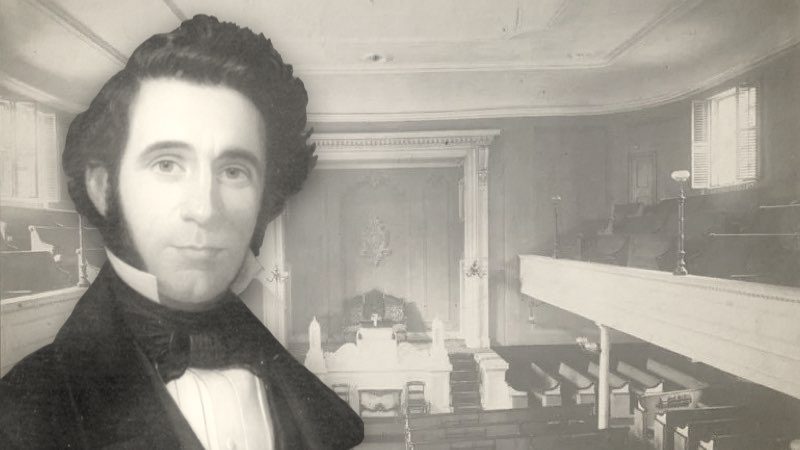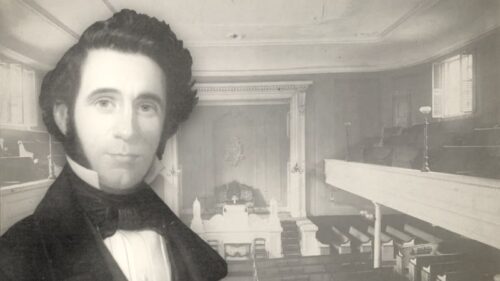-
17 Infant Baptism
The baptism of unconverted children and unconscious infants has become common through the Christian world. The Romish Church, the Greek Church, and most of the Protestant churches practise it. Yet Baptists condemn it as unscriptural, unreasonable and pernicious. They believe that repentance and faith should always precede baptism. Without these baptism has no significancy, and serves no religious purpose. Whenever these gracious exercises have been experienced, whether in young or old, the subject may be admitted to the holy ordinance of baptism. But never till he has believed. Infants incapable of faith are, therefore, unfit for baptism. Manifest Propositions. Baptists make and defend the following propositions respecting this practice: Prop. 1.—That there is in the New Testament neither precept nor example found to authorize or…
-
Article 20 – Baptism Should Be Preceded By Confession
Articles Of The Faith And Order Of A Primitive Or Strict And Particular Baptist Church Of The Lord Jesus Christ, Based On The Declaration Of Faith And Practice Of John Gill, D. D., 1720 XIX. Baptism, its Subjects, Method and Significance. We believe that Baptism consists of the immersion in water of the whole persons of professed believers,[1] “ in the name of the Father, and of the Son, and of the Holy Ghost”[2] and sets forth our identity with Christ Jesus in His death and resurrection; the necessity of the new birth ere we can be vitally associated with the true church of the Lord Jesus; and the cleansing of sin by His precious blood.[3] ------------------------------- (1) Matt 3:6,16; Jn 3:23; Acts 8:36-38 (2)…
-
Article 19 – Baptism, Its Subjects, Method And Significance
Articles Of The Faith And Order Of A Primitive Or Strict And Particular Baptist Church Of The Lord Jesus Christ, Based On The Declaration Of Faith And Practice Of John Gill, D. D., 1720 XIX. Baptism, its Subjects, Method and Significance. We believe that Baptism consists of the immersion in water of the whole persons of professed believers,[1] “ in the name of the Father, and of the Son, and of the Holy Ghost”[2] and sets forth our identity with Christ Jesus in His death and resurrection; the necessity of the new birth ere we can be vitally associated with the true church of the Lord Jesus; and the cleansing of sin by His precious blood.[3] ------------------------------- (1) Matt 3:6,16; Jn 3:23; Acts 8:36-38 (2)…
-
Article 18 – The Two Ordinances
Articles Of The Faith And Order Of A Primitive Or Strict And Particular Baptist Church Of The Lord Jesus Christ, Based On The Declaration Of Faith And Practice Of John Gill, D. D., 1720 XVIII. The Two Ordinances. We believe that Baptism and the Lord’s Supper are the only two symbolical ordinances enjoined in the Gospel; all other ritualistic forms and ceremonies being disallowed and forbidden by the Word of God. ------------------------------- Mal 3:7; Matt 5:19; 15:9; 28:20; Col 2:20-23, read verse 20, “are ye subject to (humanly devised and unscriptural) ordinances”? Annotations: Sacramentalists and Evangelicals. Note 1.—It is customary to divide Christendom into Protestant and Catholic. It were better to divide it into the Evangelical and the Sacramental sections. These are sharply distinguished by…
-
Article 16 – The Constitution Of The Church
Articles Of The Faith And Order Of A Primitive Or Strict And Particular Baptist Church Of The Lord Jesus Christ, Based On The Declaration Of Faith And Practice Of John Gill, D. D., 1720 XVI. The Constitution of a Church. We believe that a Church is an independent and organised body of spiritual men and women[1] who have been baptised and are agreed upon the essential truths and ordinances of the Gospel,[2] and have voluntarily given themselves to the Lord and to each other, for their common benefit and the glory of God;[3] and that it is subject (in all spiritual matters) to no authority save that of the Lord as made known in His holy word.[4] ------------------------------- [1] Acts 15:41,42; 18:22; Rom 16:16; 1…
-
15 Christian Baptism
Ordination, in its popular sense, is that form of service by which men are admitted to the ranks of the Christian ministry, and to the exercise of its functions. So important a relation does this service sustain to the character of the men who fill their pulpits and become the instructors and guides of the churches, that ritualistic communions hold it as a sacrament. While ordination is but one of the avenues by which worthy men can be admitted to, and unworthy men excluded from, the sacred office, yet it is one, and should be sedulously guarded by watchful churches and conscientious Councils and Presbyteries—that the ministry be kept pure and true to its high calling. For, while neither churches nor Councils can prevent a…




